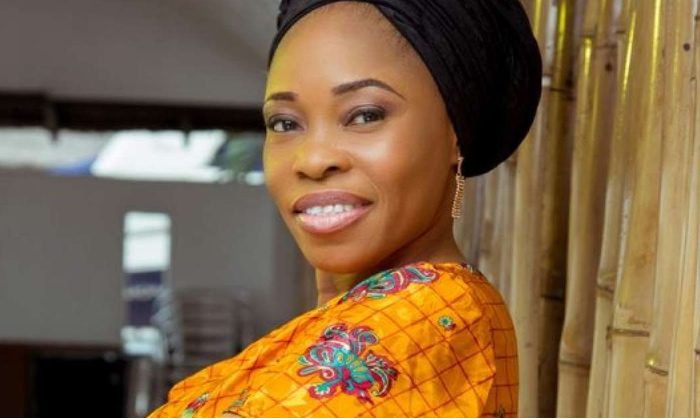
Following the comments that greeted a video capturing renowned gospel singer, Tope Alabi, infusing a Yoruba traditionalists’ common greeting parlance, ‘Aboru aboye’ into her worship song, an Ifa-priest, Oluwo Jogbodo Orunmila, has told the award-winning singer to conduct an ancestry Deoxyribo Nucleic Acid (DNA) to be sure of her origin.
In the viral video, Alabi and her backup singers were heard referring to themselves as ‘ebo’ literally meaning sacrifice, emphasising that they are ‘Aboru Aboye’ meaning that they have been accepted as sacrifice by God.
Orunmila who is the chief priest of Iledi Imule Agba in Oyan, Odo Otin North Local Council Development Authority in Osun State while speaking with The PUNCH in an exclusive interview on Monday noted that Alabi has always been enmeshed in the usage of traditionalists’ lexicons.
He mentioned the singer’s use of ‘Eledumare’ and several other appraisals usually meant for Orunmila (god of wisdom) and Yoruba deities.
The Ibadan-based priest said, “All these phrases showed that Tope Alabi needs ancestry DNA to confirm that she belongs to the Ifa tradition. Those words are forcing their way out, she only needs the right teachers to get fully on track.
“Ifa is ancestry. When a lineage known to be Ifa practitioners stop its practice, there would be a day when one of the family members will illustrate the doctrines of Ifa, knowingly or unknowingly.
He maintained that whoever has come out to tag Alabi as an idol worshipper is just fuelling public opinion and is particularly not knowledgeable enough to know that Ifa only identifies those who want to be identified because it embraces secrecy.
“Identifying with Ifa is discretionary. One can either let the public know or not. Ifa does not stop you from identifying with other religions even when you are under its supervision.
While fielding questions on whether the phrase is a usual lexicon that anybody could use, Orunmila said, “It is not. It is certainly used by the Ifa initiates.
“The Ifa worshippers (Babalawo and Iyanifa) are the ones that use that to greet one another because it was a legacy passed by Orunmila. In fact, ‘Aboru Aboye’ is often accompanied by ‘ni Ile Ifa’, meaning ‘May everything including sacrifices be accepted in this Ifa household.’”
Speaking into how the phrase became a common greeting among the Ifa initiates, he narrated that Odu Ifa Ogunda’ meji’ in Ifa corpus birthed the stories of three women; Aboru, Aboye, and Abosise who rendered special help to Orunmila were told.
“It was said that in a bid for Orunmila to consult Olodumare, these three women were like guardians that must be appeased to help Ile-Ife be peaceful.
“Orunmila made sacrifices to appease these women, and he had an easy passage to see Olodumare to help relieve the land of plague. Just for their power and kindness, Orunmila decided to honour them asserting that anyone who wants to see Iyanifa or Babalawo must first pay homage to Aboru, Aboye and Abosise!”
Alabi has always been afflicted with inundating controversies, in 2013, Alabi’s affiliation with her late prophet, Elijah Ajanaku who was reportedly buried by some cult members stirred debate with many alluding to one of the songs of the gospel singer paying attribute to the God (god) of Ajanaku as occultic while others believed that she must have been inflicted with a strange anointing.
Another was evident in a video that made rounds on June 13, 2021, in the Nigerian digital space, showing the gospel singer criticising a popular Christian song, “Oniduro Mi”, which was sung by iconic singers, Tolu Adelegan and Yinka Alaseyori, at different times.
In the Yoruba language, Oniduro Mi simply means my guarantor. The song exalts God as a guarantor and one who never forsakes His own.
While commenting on the song, Alabi noted that God was more than a guarantor to her.
The singer further said that there was a time she wanted to sing the song but the Holy spirit cautioned her against doing so.




